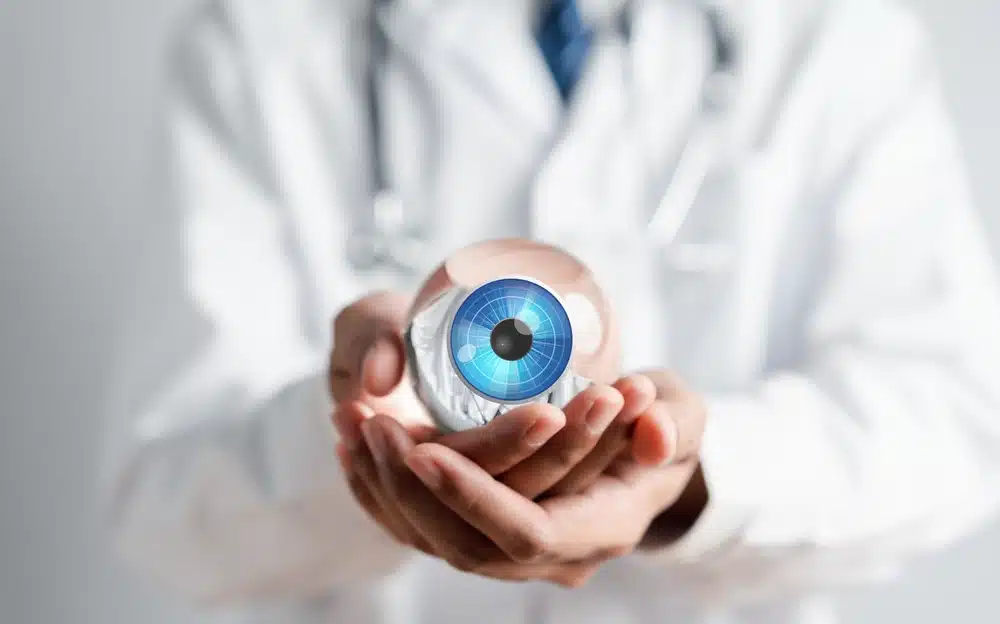All Categories
Featured

While a lot of people comprehend the importance of safeguarding their skin from the sun, the harmful impacts of ultraviolet (UV) rays on eye health and wellness commonly go overlooked. Whether you're saturating up the sun on a summer season day or walking outdoors on an over cast afternoon, securing your eyes from UV rays is essential.
What Are UV Rays? UV rays are a kind of electro-magnetic radiation emitted by the sunlight. They are categorized right into three kinds:
UVA Rays: These penetrate deep into the skin and eyes and can add to long-lasting damages. UVB Rays: These rays are extra intense than UVA and are mostly accountable for surface-level damages to the eyes and skin. UVC Rays: These are one of the most dangerous but are primarily soaked up by the Planet's ozone layer and don't usually reach us. UVA and UVB rays are the main perpetrators behind eye-related damage.
Short-Term Impacts of UV Direct Exposure on the Eyes. Also temporary exposure to intense UV rays can hurt your eyes. One common problem brought on by this is photokeratitis, or "sunburn of the eye." Symptoms of photokeratitis consist of:
Agonizing, red eyes. Level of sensitivity to light. Tearing or too much watering. Short-lived vision loss or fuzzy vision. Photokeratitis is typically short-term, however it offers as a caution of just how destructive UV direct exposure can be, even in small doses.
Long-Term Impacts of UV Direct Exposure. Prolonged exposure to UV radiation can bring about much more serious and irreversible eye conditions, such as:
Cataracts: UV rays can accelerate the formation of cataracts, a condition that triggers clouding of the eye's natural lens, bring about fuzzy vision and, if without treatment, blindness.

Macular Degeneration: UV direct exposure can damage the retina, especially the macula, raising the threat of age-related macular degeneration (AMD), which affects main vision.
Pterygium: A growth of tissue on the white part of the eye that can cross the cornea, creating pain, soreness, and vision troubles.
Pinguecula: UV direct exposure can create yellowish deposits to develop on the conjunctiva, causing inflammation and dry skin.
Skin Cancer Around the Eyes: The fragile skin surrounding your eyes is extremely prone to UV radiation, boosting the risk of skin cancers cells like basic cell cancer and squamous cell carcinoma.
Just How to Protect Your Eyes from UV Rays. Safeguarding your eyes from UV rays is easy and requires a few mindful habits:
Spend in High Quality Sun glasses: Pick sunglasses that block 100% of UVA and UVB rays. Search for labels that specify "UV 400" protection. Wrap-around designs are suitable as they obstruct UV rays from the sides too.
Use a Wide-Brimmed Hat: A hat with a brim a minimum of 3 inches large can significantly reduce UV exposure to your eyes and face.
Restriction Direct Exposure During Optimal Hours: UV rays are greatest between 10 a.m. and 4 p.m. If you need to be outdoors throughout these hours, make certain you're appropriately secured.
Don't Be Tricked by Clouds: UV rays can permeate through clouds, so it is necessary to wear sunglasses even on cloudy days.
Shield Your Eyes Year-Round: Snow, sand, and water can mirror UV rays, escalating their impacts. Eye defense isn't simply for sunny summertime days-- guarantee you're covered in all periods.
Usage UV-Blocking Get In Touch With Lenses: Several get in touch with lenses now include UV security. If you wear get in touches with, ask your optometrist regarding lenses with integrated UV filters for included defense.
Motivate Eye Defense for Children: Children's eyes are extra delicate to UV rays since their lenses are clearer, allowing even more radiation to reach the retina. Ensure they wear sunglasses and hats throughout exterior tasks.
Routine Eye Examinations. Routine check-ups with an eye care professional are vital for very early discovery of any kind of UV-related damage. An optometrist or eye doctor can review your eyes, suggest protective procedures, and find problems like cataracts or macular deterioration early on.
Final thought. By putting on UV-blocking sunglasses, restricting sunlight direct exposure throughout height hours, and remaining constant with eye examinations, you can ensure your eyes remain healthy and balanced and your vision stays clear for years to come. Protecting your eyes from UV radiation isn't just regarding comfort-- it's a crucial action in preserving your long-term eye wellness.
Latest Posts
Trustworthy Commercial Roof Covering Solutions by Weathercraft
Uncover Best Vehicle Maintenance Solutions from Montclare Auto Repair – Quality Service Today
Trusted Expenses Door Solutions for Houses and Businesses
More
Latest Posts
Trustworthy Commercial Roof Covering Solutions by Weathercraft
Uncover Best Vehicle Maintenance Solutions from Montclare Auto Repair – Quality Service Today
Trusted Expenses Door Solutions for Houses and Businesses